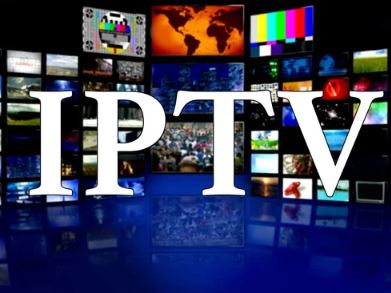In recent years, the landscape of television and video content consumption has undergone a significant transformation, with Internet Protocol Television (IPTV) emerging as a game-changer. This article delves into the world of IPTV services, exploring its definition, key features, benefits, and the impact it has on the way we experience entertainment. For more information about this kindly visit on iptvking.one

What is IPTV?
IPTV, or Internet Protocol Television, is a technology that delivers television services through the Internet Protocol (IP) network. Unlike traditional cable or satellite television, IPTV utilizes the internet to transmit media content, offering users a more dynamic and interactive viewing experience.
How IPTV Works:
Content Delivery:
IPTV services deliver content through a broadband connection, allowing users to access a wide range of channels, on-demand content, and interactive features. The content is transmitted in packets over the internet, ensuring a seamless and customizable viewing experience.
Set-Top Box or Smart Devices:
To access IPTV services, users can use a dedicated set-top box provided by their IPTV service provider or opt for smart devices such as Smart TVs, smartphones, tablets, and streaming devices. This flexibility in device compatibility is a key advantage of IPTV.
Key Features of IPTV:
On-Demand Content:
IPTV services provide a vast library of on-demand content, enabling users to watch their favorite shows, movies, and documentaries at their convenience. This shift from scheduled programming to on-demand viewing enhances user autonomy.
Interactive Features:
One of the distinguishing features of IPTV is its interactivity. Users can engage with content through features like live chat, polls, and instant feedback, creating a more immersive and participatory viewing experience.
Time-Shifted Viewing:
IPTV allows users to time-shift their viewing, meaning they can pause, rewind, or fast-forward through live broadcasts. This feature gives viewers greater control over their television experience, accommodating busy schedules.
Benefits of IPTV:
Cost-Effective:
IPTV services often come at a more affordable price compared to traditional cable or satellite TV. Users can choose from various subscription plans, selecting only the channels and features they desire, reducing unnecessary costs.
Global Accessibility:
With IPTV, geographical restrictions are minimized. Users can access content from around the world, breaking down barriers and providing a diverse range of programming options. This global accessibility enhances cultural exchange and diversity in content consumption.
High-Quality Streaming:
IPTV services leverage high-speed internet connections to deliver content in high definition (HD) or even 4K resolution. This ensures a superior viewing experience, with crisp visuals and clear audio, contributing to the overall appeal of IPTV.
Impact on the Entertainment Industry:
Disruption of Traditional Broadcasting:
The rise of IPTV has disrupted traditional broadcasting models, challenging cable and satellite TV providers. This shift has prompted the industry to adapt to new technologies and explore innovative ways to engage viewers.
Rise of Streaming Platforms:
IPTV’s success has paved the way for the dominance of streaming platforms. Over-the-top (OTT) services, such as Netflix, Hulu, and Amazon Prime Video, have thrived on the principles of IPTV, reshaping the entertainment landscape.
Conclusion:
In conclusion, IPTV services have redefined the way we consume television and video content. With its on-demand capabilities, interactive features, and global accessibility, IPTV offers a personalized and immersive viewing experience. As technology continues to advance, the influence of IPTV on the entertainment industry is set to grow, providing users with even more options and flexibility in their quest for quality content.
Also Read
Maximizing Convenience and Efficiency: The Role of Self Storage Facilities:

